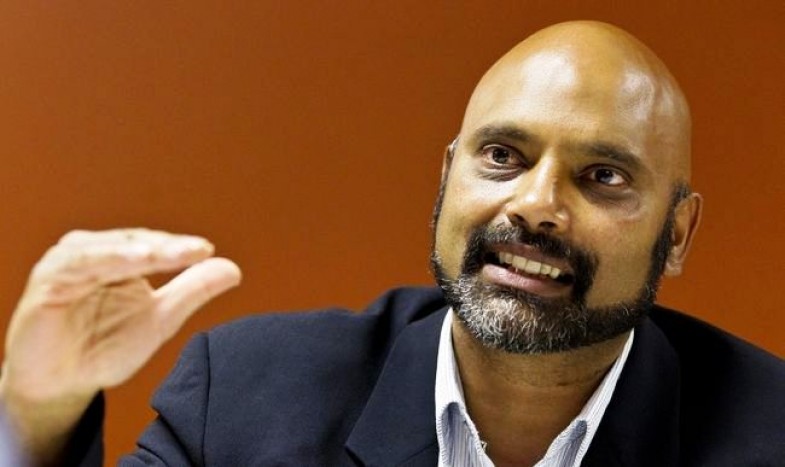COMMONS MAGAZINE

Canadian organizer Anil Naidoo, 50, has spent most of his life working to protect people from the perils of privatization—in inner city neighborhoods of his native Alberta, on Parliament Hill as an aide to a member of Parliament, with the Council of Canadians working on health care issues and now, around the world, as a coordinator of Blue Planet Project.
“But you don’t sustain a movement on what you’re against,” he notes. “You need to be clear what you are for—and, in my case, it’s the commons and human rights, which go right together.”
The Blue Planet Project stresses the idea that water belongs to everyone—as a human right and a commons. Founded by the Council of Canadians’ Maude Barlow, former senior advisor on water to the president of the UN General Assembly, the group advocates democratic community control of water and pushes for an international treaty establishing the Right to Water.
Naidoo and his global allies made some progress toward the treaty at last summer’s Rio+20 conference, where the human right to water and sanitation was agreed by consensus to exist and referenced in the final conference documents. “It’s a wedge for us to get in and after our work in New York and Rio, no government can claim there is no human right to water and sanitation,” he explains.
But overall he described Rio as a disappointment for social justice and environmental activists. “The bottom line was a financial vision of nature rooted in speculation, markets and property rights—the opposite of the commons.”
The importance of the commons as a compelling alternative to ever-prevalent privatizaton rhetoric first struck Naidoo while attending the World Water Forum in Mexico City in 2006. “That was when I first started to see the practical applications of the commons. Then I visited [water activist] Rajendra Singh in India and that was a major, major shift in thinking for me.”
To this day, he vividly remembers watching peasants in Rajasthan involved in a “River Parliament”, where they were making decisions about water use in their region. “They actually manage it as a commons.”
Discovering the commons changed his thinking, Naidoo recalls. “It gave me a lens to deconstruct what society is but also how to reconstruct it based on our commons principles like participation, justice and sustainability. You can see the most important thing is people coming together and working together.”
Naidoo was born in South Africa during the apartheid era into a family that had originally come from India as indentured servants on sugar cane plantations more than a century earlier. When he was four, they moved to a French-speaking village in northern Alberta where his parents taught school.
His experiences as an outsider helped form strong beliefs that everyone in society needs a sense of belonging. So did growing up in a cold climate. “If you see someone stuck on the side of the road in the winter, you stop to help. Everyone relies on each other.”
Today, despite his extensive travels, Naidoo is on the board of his local community association in Ottawa’s Centretown West neighborhood and on his children’s school council. He also serves on the executive board of On the Commons and “Grassroots International”:http://www.grassrootsonline.org/.
“There are two very different paths facing us,” he says. “One leads to the commons, with a strong sense of community and places us within nature. The other leads to artificial individuality where we live separate from nature and each other.”